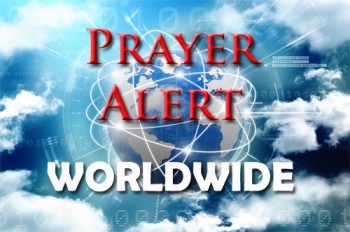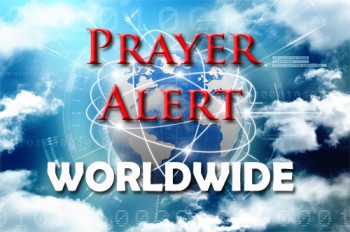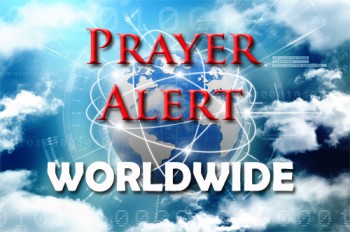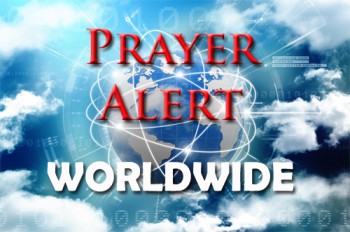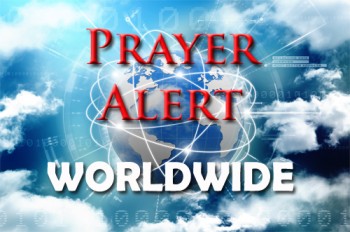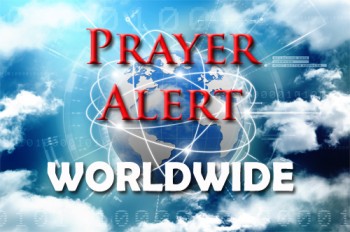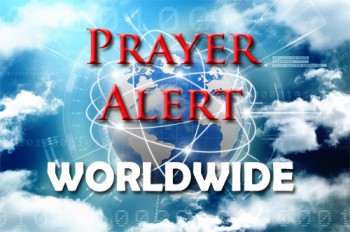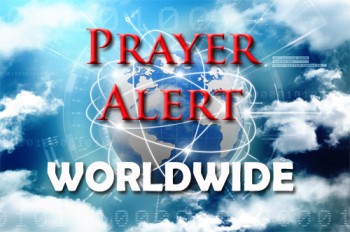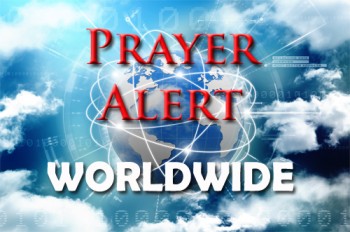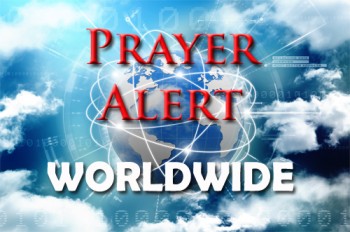Displaying items by tag: Africa
Egypt: 'Sinai is our Vietnam'
Servicemen in the Sinai peninsula are ill-equipped and under-trained. Since the insurgency began, Egypt's propaganda narrative has portrayed its fighters as religious, disciplined, ‘born to kill’ fighting machines. Men aged 18 to 30 must serve in the military for eighteen months, followed by a nine-year obligation to serve if called for duty. IS militants are trained in guerrilla and desert warfare and house-to-house combat, and have military experience in Gaza, Syria, Afghanistan, Iraq and Libya. Egypt’s fighting forces are conscripts with 45 days in boot camp. Moataz, a medic now discharged from military duty, still has nightmares about his service and visits a psychiatrist. He said, ‘Body parts were everywhere in a scene that I will never forget. The rest of the bodies were firstly wounded and then executed by gunfire. Some bodies had more than 20 bullets in their heads. To us and many other conscripts, Sinai was our Vietnam.’
Nigeria: Boko Haram threat displaces 30,000
Fear of renewed attacks by Boko Haram is prompting the exodus of 30,000+ people from the town of Rann. UNHCR spokesman Babar Baloch told reporters in Geneva on 29 January that the town's population ‘seems to be panicking; they are on the run as a pre-emptive measure to save their lives.’ Rann, near the border with Cameroon in northern Borno state, has already seen an exodus of 9,000 people to Cameroon after a Boko Haram attack on 14 January, killing 14 people. Baloch said that Cameroon had sent back the 9,000 refugees, and initially deployed troops as part of a multinational task force to protect the town, but that task force has now left. A recent upsurge in violence in northeastern Nigeria has driven more than 80,000 civilians to seek refuge in already crowded camps or in towns in Borno state, ‘where they are surviving in tough living conditions’. The hostilities have strained humanitarian operations there and forced aid workers to pull out from some locations.
Central African Republic (CAR): new peace talks really matter
90% of CAR’s population are Christian; Islam is practised by 9%. All the people are suffering. As a new round of peace talks between armed groups and the government began on 22 January, the UN’s top humanitarian official in CAR warned that continued violence could push the country closer to famine. Around 2.9 million people (63% of the population) need humanitarian assistance and protection. Of those, 1.9 million require acute and immediate aid. Food security and protection are the main concerns. Increasing levels of violence drive the ongoing crisis, with near-constant conflict since 2012. Although a peace agreement was reached in 2013, rebels seized the capital two months later, forcing President Bozizé to flee. Rival militias have fought each other ever since. Much of the country is overrun with armed groups, despite the 2016 election of President Touadéra.
Global: Christian persecution rising
Figures for the persecution of Christians have shown a 'shocking increase', by 13.9% according to Open Doors World Watch List 2019. Asia has a sharp rise. China rose 16 places to number 27, with new laws to control all expressions of religion. Some church leaders say it is the worst since the Cultural Revolution ended in 1976. India, the world's largest democracy, is now number 10 on the list. Hindu extremists act with impunity, violently attacking Christians and churches and non-Hindu religious minorities. Rising nationalism is leading to persecution in Bhutan, Myanmar and Nepal, where national identity is tied to religion and those from minority faiths are considered outcasts. Persecution in North Korea has been worse than any other country for the last 18 years. In the north and middle of Nigeria, 3,700 Christians were killed for their faith - almost twice as many as the previous year.
Widespread persecution of journalists
The risks journalists take when reporting on corruption continue. Ahmed Hussein-Suale, an undercover journalist working on an investigation with the BBC about corruption in Ghana’s football leagues, was shot and killed after a politician called for retribution against him. In Turkey, journalist Pelin Ünker was found guilty of ‘defamation and insult’ and sentenced to thirteen months in jail for her work on the Paradise Papers investigation into offshore tax havens. Turkey has the world’s worst record for jailing journalists - 68 in prison at the end of 2018, all of them facing charges of crimes against the state. Journalists play a vital role in exposing the corrupt and their methods; but they face threats, violence, arrest, and death as a result. Since 2017, over 190 journalists have been incarcerated worldwide for reporting on corruption. See also
Zimbabwe: violence against protesters
Zimbabwe is going through an economic crisis and is battling severe fuel shortages. The government recently announced a 150% petrol price increase, igniting widespread discontent, strikes and violent demonstrations. Then, while President Mnangagwa was out of the country, seeking much-needed foreign investment, police and soldiers launched large-scale operations against suspected protesters, activists and strike organisers. At least twelve people were killed and 78 treated for gunshot injuries, according to a local human rights group which recorded over 240 incidents of assault and torture and 700 arrests. People were hunted down in their homes by security forces and severely beaten, with arrests continuing after Mnangagwa had returned. He said, ‘Violence or misconduct by our security forces is unacceptable and a betrayal of the new Zimbabwe.’ Accused of conducting a deadly crackdown on dissent, the army and police denied any wrongdoing, saying some assailants raiding homes were wearing official uniforms to pose as security personnel.
Kenya: Christian charity calls for calm after terror attack
Catholic charity CAFOD is asking communities not to become divided after al-Shabaab attacked the DusitD2 hotel complex in Nairobi on 15 January. CAFOD's Catherine Ogolla described the attacks as ‘horrifying and worrying’. She explained, ‘What terrorists of any type want to do is to divide communities and sow violence. Therefore, all people must stand together for peace and unity in this time of trouble, sending the message out that any form of violent terror will not succeed; will not divide the Kenyan nation’. President Kenyatta said 700+ people were evacuated during the security operation, all terrorists were eliminated, and the country is safe. He urged Kenyans to ‘go back to work without fear’. Sixteen Kenyans, a Briton, and an American (a survivor of 9/11) are among the 21 dead, and 28 are in hospital. See also
Media disinformation
‘Fake news’ threatens honest debate and democracy. Donald Trump’s favourite term was named 2017's word of the year by Collins Dictionary (described as false, often sensational, information disseminated under the guise of news reporting). Facebook has employed a UK fact-checking service to help it deal with the spread of fake news. Full Fact, a charity founded in 2010, will review stories, images and videos for accuracy, focusing on misinformation that could damage people's health or safety, or undermine democratic processes. If something is fake, it will appear lower in the news feed but will not be deleted. Pray for proven misinformation to be removed completely. Brexit and the 2017 UK general election were both found to be tarnished by fake news. On 11 January Nigeria held a ‘Beyond Fake News’ summit in Abuja to examine ways of combatting fake news ahead of February’s election. See
Uganda: mother and pastor fear for their lives
Uganda’s constitution provides for religious freedom, including conversion from one faith to another. Muslims make up 12% of Uganda’s population. Recently, Muslims in eastern Uganda sent a Christian mother to hospital with injuries for praying in Jesus’s name, and tore down a church building nearby. Both the woman and the church’s pastor fear that their lives are in danger. Deborah Gimbo was attacked while praying by herself in her home. She also prays three evenings a week in her home with two Christian women. The assailants said, ‘Today we warn you that you should avoid noisy prayers and the use of Issa [Jesus] in your prayers.’ A local imam told the assailants, ‘People who pray in Jesus’ name should be fought and pressured until they only worship Allah, or are killed’. Pastor Simon Mustafa Waseke, a former Muslim, had his church destroyed by villagers. The assailants threatened to kill him if he stays in the area.
Africa: elections, poverty and potential
This year, 24 of Africa’s 54 countries are scheduled to hold legislative, general, or presidential elections. Extreme poverty and state fragility prevail in parts of Africa. This year, the World Data Lab estimates that by 2030, 70% of the world’s poor will live in Africa (notably in Nigeria and the Congo) and by that date 13 African countries will have seen an increase in the number of those living in extreme poverty. Based on these forecasts, poverty will continue to strain government institutions and threaten stability. Climate change is expected to exacerbate the challenge, with disproportionate effects on the Sahel and other unstable areas. However, massive opportunities exist for many to enter greater prosperity. The middle class is expanding, businesses are growing to meet consumption needs, and a young fast-growing population with rapid technology adoption is making the continent fertile for innovation. Pray for institutional changes and new approaches to eliminate poverty so that no country is left behind.
